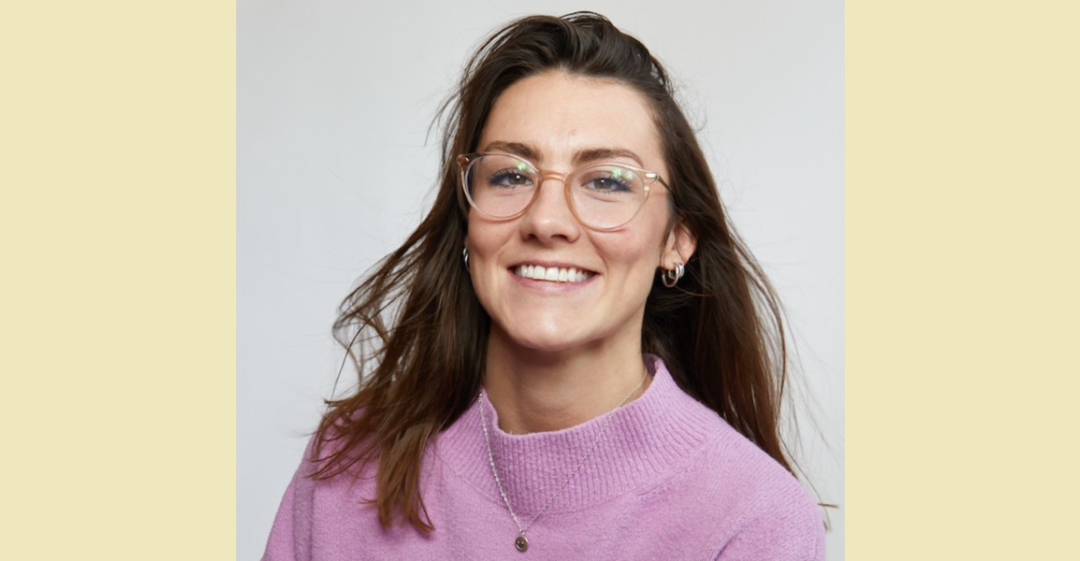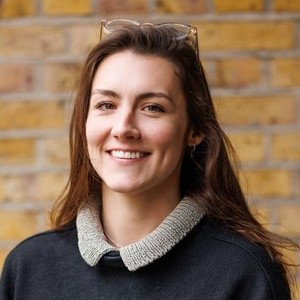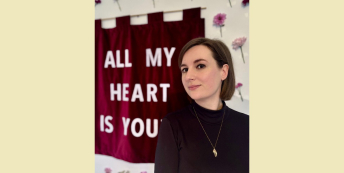“I knew it was time to trust my gut and try something new.”

What work were you doing previously?
I started my first job at KPMG when I was 18.
I ended up working in audit for 7 years. It was a brilliant first career experience which also gave me the opportunity to move to France.
However, I increasingly felt that I wanted a role that would allow me to travel and focus on more purpose driven missions.
I therefore started a job with advisory firm BDO where the majority of my clients were United Nations entities.
As part of my role, I got to go on a few very cool trips and had some great life experiences, including running 10km with 45,000 others in Addis Ababa in Ethiopia!
Unfortunately, the Covid-19 period hit pretty soon after I'd started my new role. Like many people at the time, I was confined to my bedroom.
I realised that many aspects that had really appealed to me about the job - like being on the ground in respective countries, seeing the impact of the organisation’s work - had disappeared.
I went back to KPMG in their Value Creation team (the department was subsequently carved out of KPMG to become Interpath), where I worked with companies facing challenges as a result of the pandemic.
I really enjoyed this work but for personal reasons, I felt I needed a break, and I continued to have this nagging feeling that I wanted to explore learning about and working in the impact sector.
What are you doing now?
I now work as Chief Finance & Impact Officer for 93% Club.
It’s a charity that aims to give state-educated university students the same access to powerful connections, knowledge, and opportunities that have historically benefitted their privately-educated peers.
As Chief Finance & Impact Officer of a fast-growing organisation on a mission, I lead on all things finance and impact and am responsible for building the infrastructure behind both functions.
Why did you change?
I felt like I was at a crossroads.
I needed to either really invest in progressing in that career path, or I needed to give myself the opportunity to “scratch the itch”.
Interpath, the organisation I worked for at the time, supported me with the decision to take some out, so I knew it was time to trust my gut and try something new!
Are you happy with the change?
I really like the fact that I’m the one finding the answers and setting up the structures that will become the precedent one day.
I’m enjoying being in a team with different but very complementary skillsets.
How did you go about making the shift?
I first discovered On Purpose while looking for B Corp jobs.
That was over 5 years before applying and I realised that the Head of Finance & Operations at B Corp at the time was an On Purpose Fellow.
I started to research the Associate Programme and was intrigued. Time went by but I kept On Purpose on my radar.
When I decided to apply, it felt like the right time for me.
How did you handle your finances to make your shift possible?
I made sure to accumulate some savings before starting the Associate Programme, so I could supplement the salary if needed.
I also planned the year ahead financially. For instance, I made sure my mortgage went through before applying to the programme.
What help did you get? 
My coach David Green was so supportive!
We really were a great match. He challenged me to think about things I was uncomfortable with, in a very supportive, kind way.
The On Purpose team and the wider On Purpose community, including the Associate cohorts, were all incredible.
The environment that's created while you're on the programme, really helps people be vulnerable with each other and support each other throughout the year.
What have you learnt in the process?
One of the hardest learnings for me was realising that ‘I’m the problem’ - but in a good way!
I was exposed to two different placements and projects very different to what I had been involved with previously.
I realised that I was facing a lot of the same challenges that I had in other organisations, so clearly the change had to come from within.
Rather than the external environment enabling a change, I needed to take responsibility for having better boundaries.
I needed to be more proactive with identifying and communicating what I needed to thrive in those placements.
The Associate Programme helped me invest in myself and helped me envisage different (better!) systems for myself and for society through weekly Friday training.
What would you advise others to do in the same situation?
If you’re weighing up whether to apply for the On Purpose Associate Programme, I’d recommend reaching out to people who’ve gone through it.
It can feel risky and like a big change.
Talking to someone who has probably had similar thoughts and can share their experience, will help you figure out whether the programme is the right step for you.
To learn more about the On Purpose Associate Programme, visit https://onpurpose.org/en/associate-programme.
Also, find out more about On Purpose in our Retraining Directory.
What lessons could you take from Meghan's story to use in your own career change? Let us know in the comments below.



